Iran nuclear chief meets acting IAEA chief, complains of Europe failure to meet JCPOA commitments
Iran’s nuclear chief has criticized the European signatories to a 2015 nuclear agreement for failing to honor their legal commitments to Tehran, adding that the multinational accord is “no one-way street.”
Head of the Atomic Energy Organization of Iran (AEOI) Ali Akbar Salehi made the remarks in a meeting with Acting Director General of the International Atomic Energy Agency (IAEA) Cornel Feruta in Tehran on Sunday.
The European Union was supposed to “fill the vacuum” created by the US’s withdrawal last year from the Iran deal, but unfortunately it has failed to keep that promise, Salehi said.
The deal “is no one-way street; it was supposed to be a two-way path,” the senior Iranian official added.
He also defended the three steps that Iran has taken since May in suspending parts of its commitments under the deal in retaliation for Washington’s withdrawal and Europe’s failure to protect Iran against the sanctions that the US re-imposed on Iran in the aftermath of its exit.
Iran’s countermeasures are “due decisions” made “in due time,” the AEOI head added.
Feruta arrived in the Iranian capital on Sunday morning for talks with Salehi, Foreign Minister Mohammad Javad Zarif, and Secretary of Iran’s Supreme National Security Council (SNSC) Ali Shamkhani.
Feruta and Zarif have already met but details of the negotiations are not yet known.

Iran’s Ambassador to the IAEA Kazem Gharib-Abadi has said Feruta’s meetings are part of ongoing cooperation between Iran and the UN nuclear watchdog.
Announcing the third step in Iran’s reduction of commitments under the Joint Comprehensive Plan of Action (JCPOA), AEOI spokesman Behrouz Kamalvandi said Saturday that the IAEA chief’s trip to Iran had been planned well in advance and prior to the death of Feruta’s predecessor, Yukiya Amano.
Feruta replaced Amano, who died in July at the age of 72.
Tehran has stopped observing the limits set by the JCPOA on nuclear research and development — known as R&D — as of September 6.
The AEOI said Saturday that the country has activated its advanced 20 IR-4 and 20 IR-6 centrifuges for research and development purposes. The IAEA also announced on the same day that it has inspectors on the ground in Iran, who will be able to look into the process of starting up the centrifuges.
The JCPOA was signed between Iran and six world states — namely the US, Germany, France, Britain, Russia and China — in 2015.
Washington’s exit in May 2018, however, the future of the historic deal in limbo.
Tehran remained fully compliant with the JCPOA for an entire year as confirmed by the IAEA in several reports, waiting for the co-signatories to fulfill their end of the bargain by offsetting the impacts of Washington’s bans on the Iranian economy.
As the European parties failed to do so, Tehran moved in May to retaliate against Washington’s exit and began suspending its JCPOA commitments in 60-day stages under Articles 26 and 36 of the deal covering Tehran’s legal rights.
Iran has given another two months to the European signatories to take meaningful action to save the JCPOA as a France-led diplomatic process is underway between the two sides.
France: Path of dialog still open
Separately on Sunday, French Foreign Minister Jean-Yves Le Drian said the “path of dialog” remained open despite Iran’s decision to suspend some of its JCPOA commitments.
"The actions they have taken are negative but not definitive. They can come back and the path of dialogue is still open,” he told Europe 1 radio network.
Le Drian said it was the United States which had first undermined the agreement.
“The accords... were signed by a certain number of countries, among them the United States, which has said it is no longer bound by the provisions,” he said.
Washington had then imposed more tough sanctions on Iran to the point that Tehran was seeing no gain in sticking to the agreement, he said.
The top French diplomat described Iran’s response to Washington’s deal breaking as “bad” and claimed that the three steps only led to escalation.
Zelensky’s name appears over 50 times in Epstein files: Opposition leader
Tehran rejects Trump’s riot death toll, demands proof
VIDEO | Police battle opposition protesters in Albanian capital
Israeli expansion across West Asia would be ‘fine’: US envoy
VIDEO | UK court frees remaining jailed members of Palestine Action
VIDEO | Former prince Andrew arrested by British police
VIDEO | Backlash mounts as Pakistan joins US-led Gaza ‘Board of Peace’
Saudi-Greece fiber optic project to pass through Syria instead of occupied territories: Report


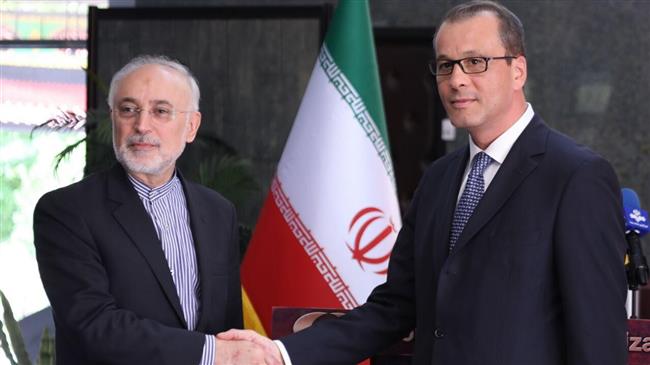

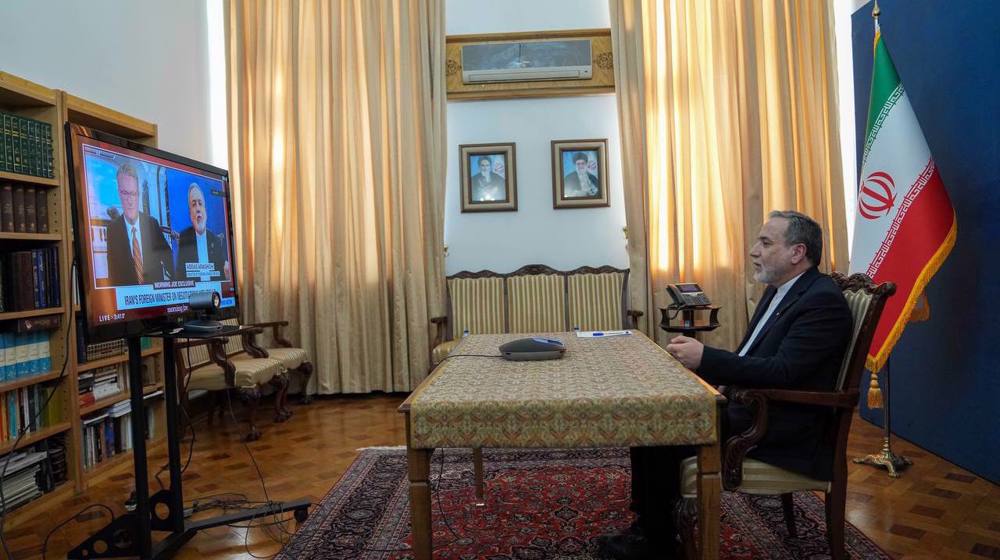
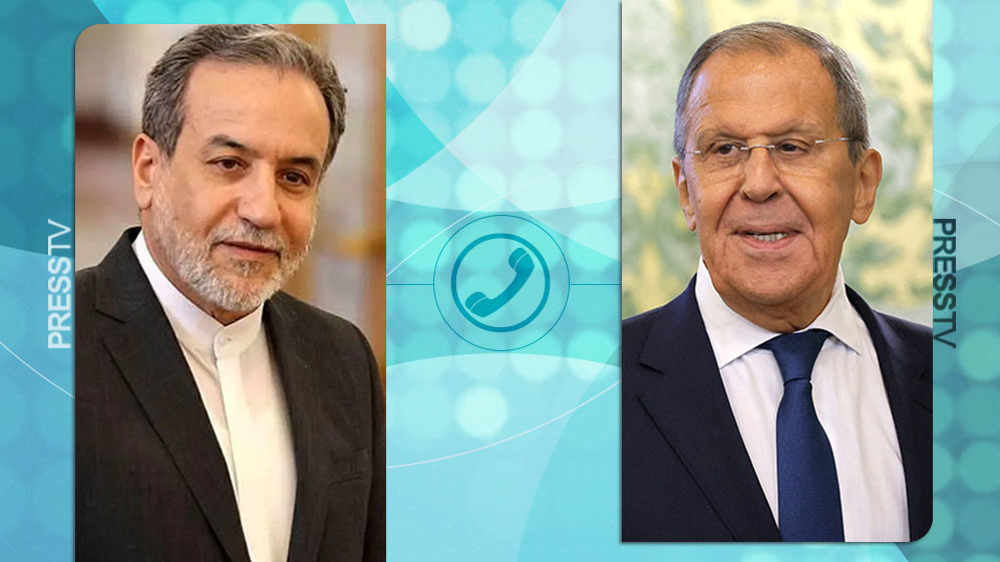
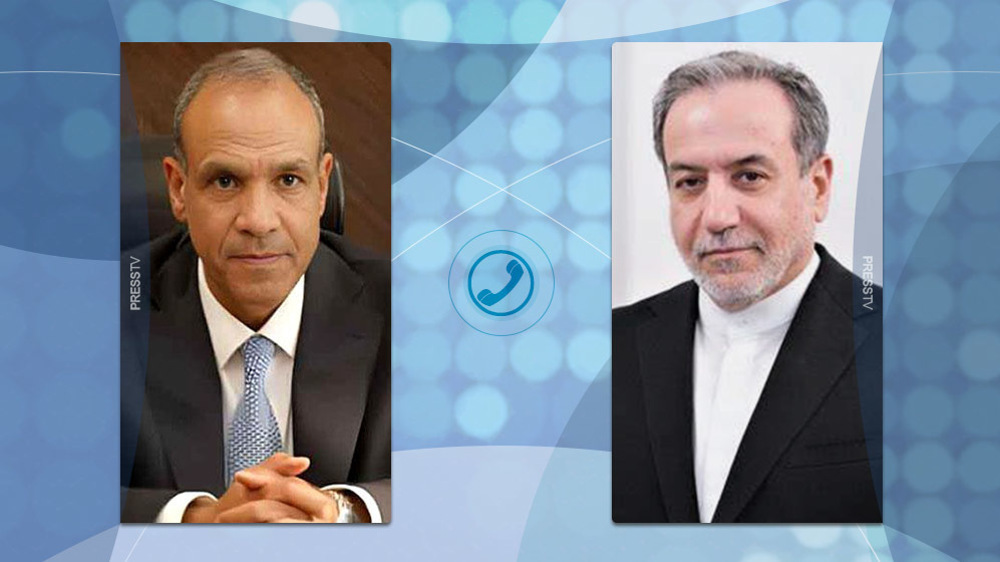



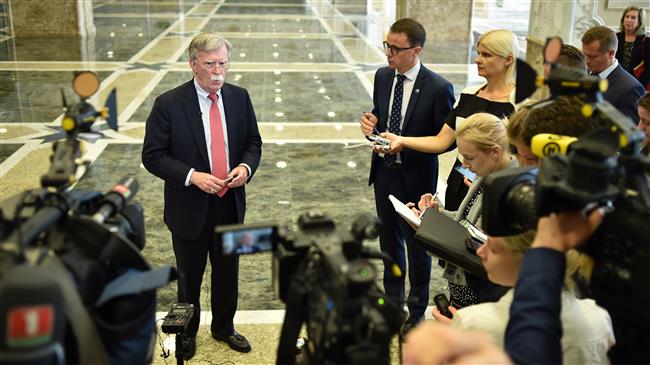
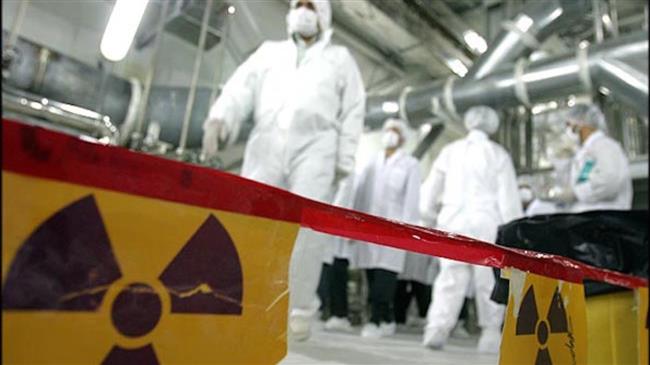




 This makes it easy to access the Press TV website
This makes it easy to access the Press TV website